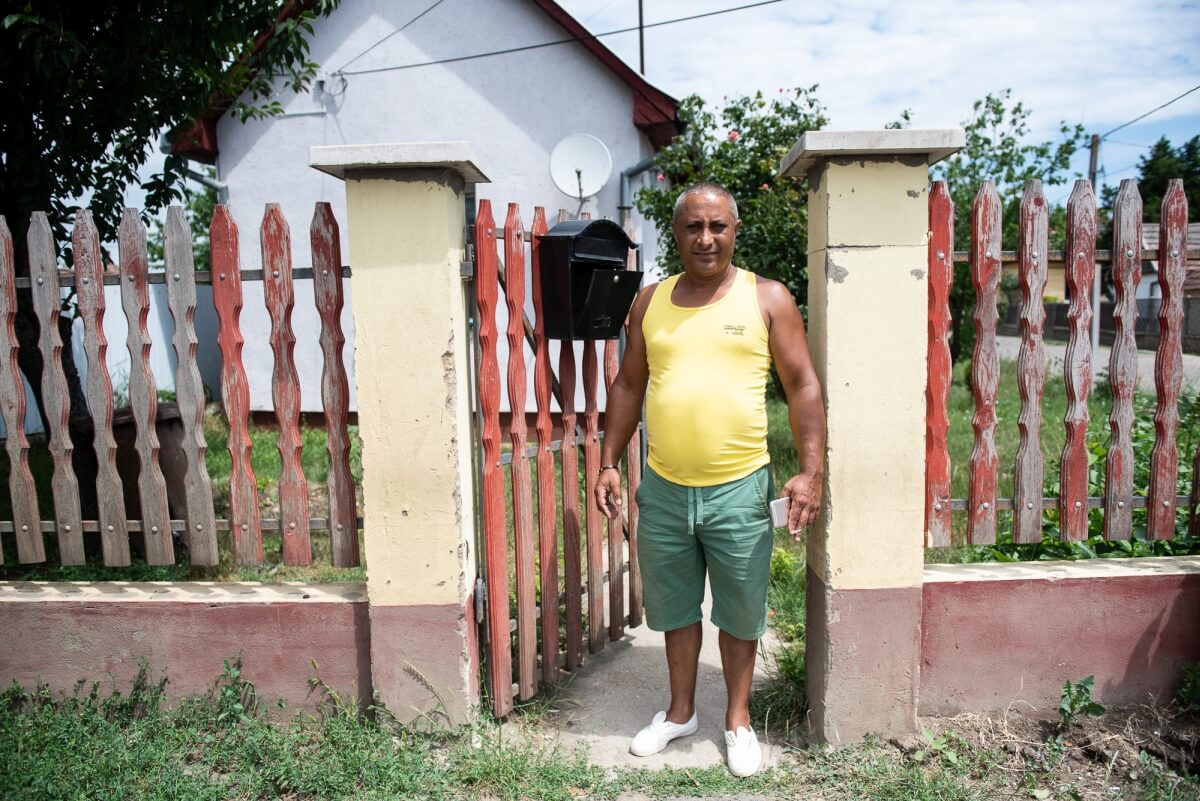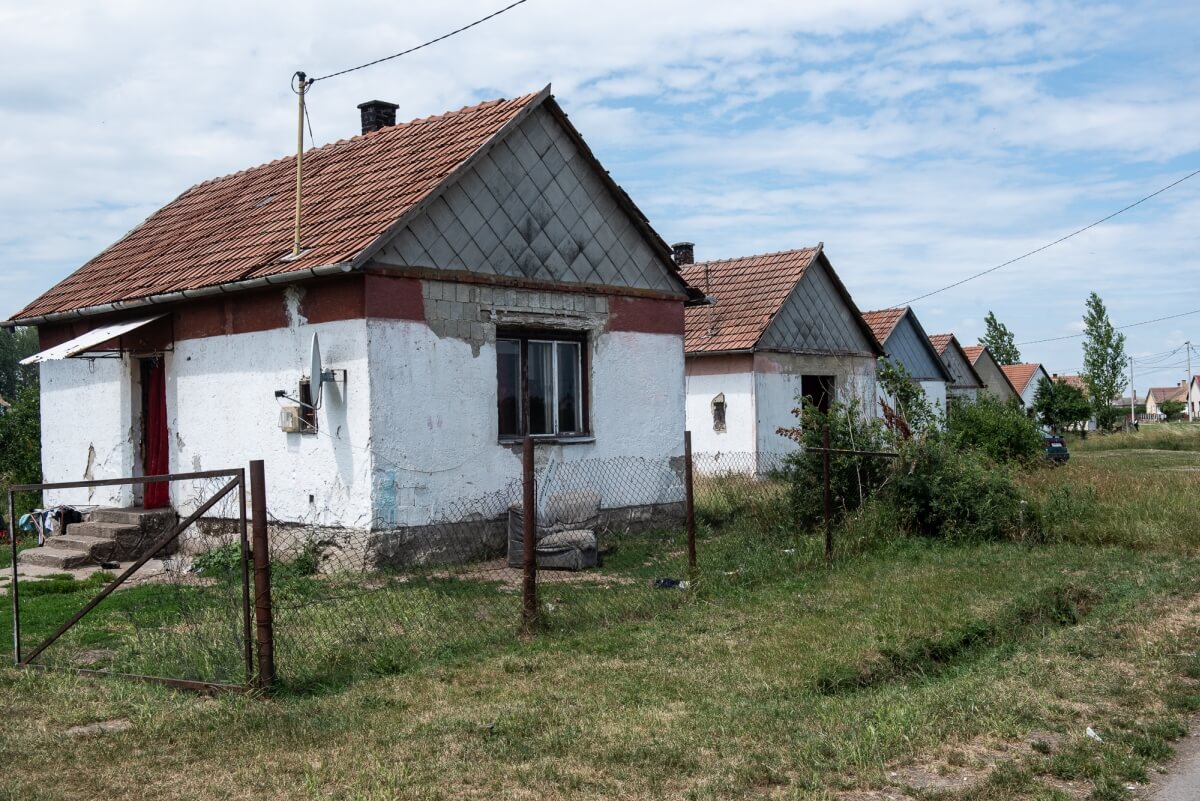In 2010, the freshly inaugurated Orbán government promised one million new jobs in ten years. Eight years later, it has become clear that—unless a miracle happens in the next two and a half years—achieving this target will be rather difficult.
Two things, however, are certain. Firstly, hundreds of thousands were forced into public works programs, but their transition to the primary labor market was not achieved. The result is a social segment growing wider and poorer that is living on the poverty line, without any chance of reaching a better life. Secondly, since 2013, the wave of emigration has been rising and has become inexorable; regardless of age, education, or profession, people are leaving the country. What remains is an unfillable void in the labor market.
Foreign workers face an unusual situation; then there are workers residing in Hungary who occasionally take short- and long-term jobs abroad. They receive less attention, despite the fact that the reasons behind this hard, often vulnerable and insecure lifestyle, that puts a heavy burden on entire families, tells a lot about the working conditions in Hungary.
Better than this
Tiszavasvári is a town in the northeast corner of Hungary, in Szabolcs-Szatmár-Bereg County, with a population of 13,000. In its two parts, Bűd and Szentmihály, several thousand Roma people live in settlements. Taking occasional or regular jobs in Western countries is relatively common among them.

Many work in agriculture, manufacturing, constructions, and some even specialize in transporting foreign workers.
Gábor, for example, made several trips abroad, he has worked in the construction sector for a longer period. He even takes pride in claiming that Hungarians have no match in scaffolding among, say, Romanian or Bulgarian foreign workers. Consequently, to do this kind of job, it is Hungarians who are mostly in demand.
Gábor arrived in Germany by accepting an invitation. That’s the routine: people leave, find proper work, do the job well, next time they get invited, so they recommend others as well, etc.
“Employment agencies cannot really guarantee this; people are invited for a specific type of work because they already have proved themselves,” explains Gábor. His son is not even returning from Germany anymore; he moved there, there are plenty of jobs and it’s more profitable to stay there.
Although Gábor did come home, the weekend I visited him he was busy enthusiastically calling his associates about a next trip, inviting them.
So why is it better to work abroad?
It would be self-explanatory to say it’s for the money; because wages for trained construction workers can be significantly higher than at home. The situation, however, is more complex. Finding a job in Tiszavasvári or its neighborhood is difficult. There are a few options—e.g., public works, a nearby poultry processing plant, or going to the big cities like Nyíregyháza, Miskolc, even Budapest—, yet, if someone intends to find a job matching their profession, the way Gábor wants to do scaffolding work, opportunities decline.

And even if someone manages to find a job, that’s most probably undeclared work, therefore highly insecure. And even if the work is registered and there is an agreement on the salary, there is no guarantee that the payment will be transferred in time, or entirely.
Working conditions are also an issue; workers’ hostels are crowded and in bad shape, while it should be easy to understand how important an appropriate environment is when resting after a whole day of hard physical work.
An even bigger problem is that employers often don’t comply with workplace safety regulations. Full or partial lack of personal protective equipment, use of improper tools, insufficient rest periods—the list of life-threatening factors that Gábor, too, has run into during construction works in Hungary, is long.
“In Germany, that is out of the question. You cannot even go near work, to begin with, until you’ve finished a training, until you’re familiar with the equipment you’re going to work with. Then, we’re checked several times every day, to see whether we’re using the protective equipment as intended. If someone is not wearing a helmet, they have to leave the scaffolding, that’s how strict it is, workers are really taken care of. Overtime is paid for. Rest periods are maintained. The places we stayed at were like—I didn’t believe my eyes,” says Gábor, as he reaches for his phone to show photos of the apartment they used last time. “There is no crowd, we didn’t have to sleep at a mass accommodation in the dirt, there was a fine kitchen, we could cook, you won’t believe me, but there was a pool in the garden.”
From a Hungarian point of view, the respect that surrounds foreign workers really seems obscure.
Gábor agrees; even when doing hard physical work, the way people treat you matters, too. And, as far as his experiences are concerned, the work they do really is respected, which is made evident—beyond being invited repeatedly—by the fact that they are treated as human beings, their needs are cared for.
It happens
Naturally, working abroad has disadvantages as well, these also should be parts of the discussion.
László, a friend of Gábor, described one. As a mason, he, too, does construction work. If he gets the chance, he, too, makes trips abroad; he has invitations, but he has bad experiences as well.

This is what happened. They decided to go to France, because, the rumor was, there were nice jobs. Not caring much, they jumped in the car and drove to Paris. Previously they heard about a few places where it was worth looking, and soon they found a construction foreman who hired them. They agreed on payment terms, they were supposed to be paid every two weeks. The first two weeks passed, and they got nothing, not even later… They had to go home, empty-handed.
According to László, the only way to prevent this from happening is looking for a job through personal connections, directly—a lesson he did learn. Nevertheless, he also believes that foreign work is the only viable option. Why?
“Here, there’s nothing here. Not nearby, at least. You can go to Budapest, but it’s not that much better there either. Wages are low, the conditions are worse. Why not go abroad then?” he replies.
Hard on families
When describing foreign workers’ conditions, the perspective of those left home is often ignored. Ferenc and Erzsébet, husband and wife, help us understand it. Ferenc is a relative of Gábor, they have even worked abroad together; on several occasions, Ferenc stayed for months, to make as much money as possible. As a result, their home is a lot neater than most in the settlement; also, it’s only them, as their children have families and moved out—and they did that with their parents’ help, which is a huge deal.
This, however, had its toll. While Ferenc did construction work in Germany, Erzsébet remained at home, practically alone.
“I had to reorganize my life entirely. Do the groceries, take the children to the doctor, do paperwork; I had to deal with these things alone, which wasn’t easy. And beside this, I had a job as well, which made it even more difficult to take care of the household by myself. Also, it’s not a pleasant feeling, being alone, with your partner in another country, far away,” recalls Erzsébet.
Why didn’t they leave together, one might ask; especially since it was only the two of them in the household.

“As a woman over 50, it’s not that easy to find work anymore. Even if there had been unskilled work that I would have been able to do, employers looked for younger workforce,” she explains, facing the same problem in Hungary as well. She used to work in a factory, on the production line, packaging; however, the harshness of the work caused health problems, and eventually the occupational physician recommended her to look for another job, saying, the stress had become more than what her body could take. Erzsébet is desperate for sure, vacancies are rare, especially in the area, being picky is not an option. She had reached an impasse.
Meanwhile, although Ferenc is home at the moment, he is already planning a coming trip to Germany to a construction site. There are bills to pay.
Tiszavasvári is only one case among the many towns of the underprivileged region. Things are not looking too good here. Although not exceptionally bad, either. Throughout the country, foreign workers commuting across the borders would confirm the accounts told by Gábor, László, and Ferenc.
What’s the overall picture?
All three men work on construction sites. At the same time, figures indicate that the building industry in Hungary is booming. In the first quarter of 2018, 65% more houses were built than in the same period last year. So there is work.
Yet—confirming what the men from Tiszavasvári said—the building industry is a rather dangerous sector.
According to the latest report by the Ministry of National Economy, fatal injuries in Hungary are highest in the construction sector, with an also high number of serious accidents and amputations.
There are several causes; for example, 90% of the registered workforce are unskilled workers, who are more likely to suffer injuries than trained workers. Also, the significantly higher demand for workers leads to the re-employment of the retired workforce, who, experts claim, are not more vulnerable to injuries than their younger colleagues, but their recovery takes more time.
Currently, there are about 310,000 people employed in the sector, including 3000-3500 foreign workers. Risks are higher in the latters’ case, according to the National Federation of Hungarian Building Contractors, because they have no local knowledge, and no experience either with the tools and machines used here, or with our working culture.
Working conditions, as we can see, are quite imperfect. Yet, even more disturbing is that in 2017, based on the statistics by the Department of Labour Inspection of the Ministry of National Economy, 47% of workers in the sector participated in undeclared work—a number that is higher than in the year before. This year, the labor authorities’ early-summer inspections indicated that, among audited companies, the rate was 60%.
Vulnerability in the construction sector is terrible—and the agricultural or manufacturing sectors are no different, be it undeclared work or work-related injuries.
Meanwhile, by changing the legal framework of strikes, the government essentially stripped trade unions of all their means of pressurizing, making advocacy for workers in recent years irrelevant. It has become impossible to demand actual changes.

Taking all the above into consideration, it is no surprise that skilled—and unskilled—workers look for opportunities across the border. Even if it has its risks.
What can we expect?
The apparent tendency in Hungary today is to direct younger generations toward vocational education. While this could provide, for young Hungarians at least, professional trainings that match labor market demands, is it also impeded by repeated government cuts in education. As a result, these training programs are unable to meet the criteria of the 21st century; despite being overwhelmed, students receive superficial knowledge, and enter the market without competitive qualification.
Current economics dictate differently anyhow. Foreign companies—e.g. automobile manufacturers—establish plants in Hungary that require cheap, unskilled workers. However, to reduce long-term expenses, companies will—in the near future—automate production processes, making these workers expendable exactly because of their lack of specialized knowledge; and they will be practically unable to find new jobs for the very same reason.
Today, the Hungarian government has no solution to these problems, be it labor market difficulties or educational flaws; even regulating employers seems to be a challenge too complicated to face.
The situation is not encouraging at all. Comprehending the fact that it’s worth driving—and covering travel expenses—from the Roma settlements of Tiszavasvári all the way to Germany, Switzerland, or the Netherlands, because, compared to Hungary, the wages in these countries are better, working conditions are safer, and providing professional training is more important, one is left with one final question; why is anyone still here?
![Political Critique [DISCONTINUED]](http://politicalcritique.org/wp-content/uploads/2015/09/Political-Critique-LOGO.png)
![Political Critique [DISCONTINUED]](http://politicalcritique.org/wp-content/uploads/2015/09/Political-Critique-LOGO-2.png)
Stoopid…that’s why Hungary has a labor shortage.
The global economic expansion has resulted in Hungary using up its excess labor pool and is now limiting its ability to expand further without an increased labor supply…which isn’t coming because of anti-immigration policies.
The attempts to attract ethnic Magyar from Romania and Ukraine have largely failed because Hungarians don’t really treat them like Hungarians and don’t think much of them and for Hungarian-Romanians, if they really want to make money, they go to the U.K., Spain, France, Italy or Germany.
Wow! Should not someone start any article by documenting themselves? Actually, since 2010 the number of people working increased from 3.6 million to just under 4.5 million, so not far from the goal of 1 million more jobs. True, some of them are in fostered work program, but the number of people involved has been declining steadily.
This is a more accurate view on Hungary’s labor market:
“In May–July, compared to a year before, the increment in the domestic primary labor market was 92,200, up 2.2%. The number of people declaring work in public employment decreased by 36,700, down 18.7% year-on-year, while the number working abroad was down 5,500, or 4.9%.”
https://bbj.hu/economy/unemployment-rate-steady-at-36_154133
Some actual facts, not just opinion!